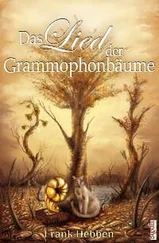The orchestra was playing with sparkling virtuosity-a great, carousing, fortissimo waltz in which extraordinary liberties were being taken with meter. The melody was held back by the introduction of subtle hesitations, which made the music hover for the briefest moment before each reprieve of the principal theme.
Liebermann recalled a passage from von Saar's Marianne: a waltz could melt away years of repression, fanning flirtation into passion. The rapid motion, the relentless turning, the dizzy euphoria, the heat of a woman's back felt in the palm of one's hand…
Amelia looked up at him, and her eyes had never appeared more beautiful. He rediscovered the shock of when he had first noticed their inimitable color, neither blue nor gray but something in between: their depth enhanced by a darkening at the edges of each iris. Liebermann drew her closer, and his lips brushed the silver ribbons in her flaming hair.
The impetuous elan of the orchestra was contagious.
Is this the time?
He had asked himself this question before-on so many occasions.
Is this the time?
Suddenly the tension dissipated, and he whirled Amelia around with such enthusiasm that she briefly achieved flight.
“Dr. Liebermann?”
He laughed, and the vertical crease with which he had become so very familiar appeared on her forehead.
“What is it?” she asked.
How appropriate, thought Liebermann, that we are attending the clock makers’ ball.
There would be time enough…
Even if Nietzsche was right and there was such a thing as eternal recurrence and every man and woman was destined to revisit the lost opportunities of the past in perpetuity-he no longer cared. Psychoanalysis had taught him the importance of little things, and perhaps it was these little things that made human beings human: the mistakes, the blunders, the qualms, the petty vacillations and doubting. Liebermann understood-better than most-that there were hidden virtues in human frailty.
Yes, there was time enough: the promise of days and months and years to come.
Amelia was still looking at him quizzically-waiting for an answer. When it came, it was intellectually disingenuous but emotionally sincere. It felt right.
“There's no place like Vienna!” Liebermann cried. And, once again, Amelia's feet parted company with the ground.












